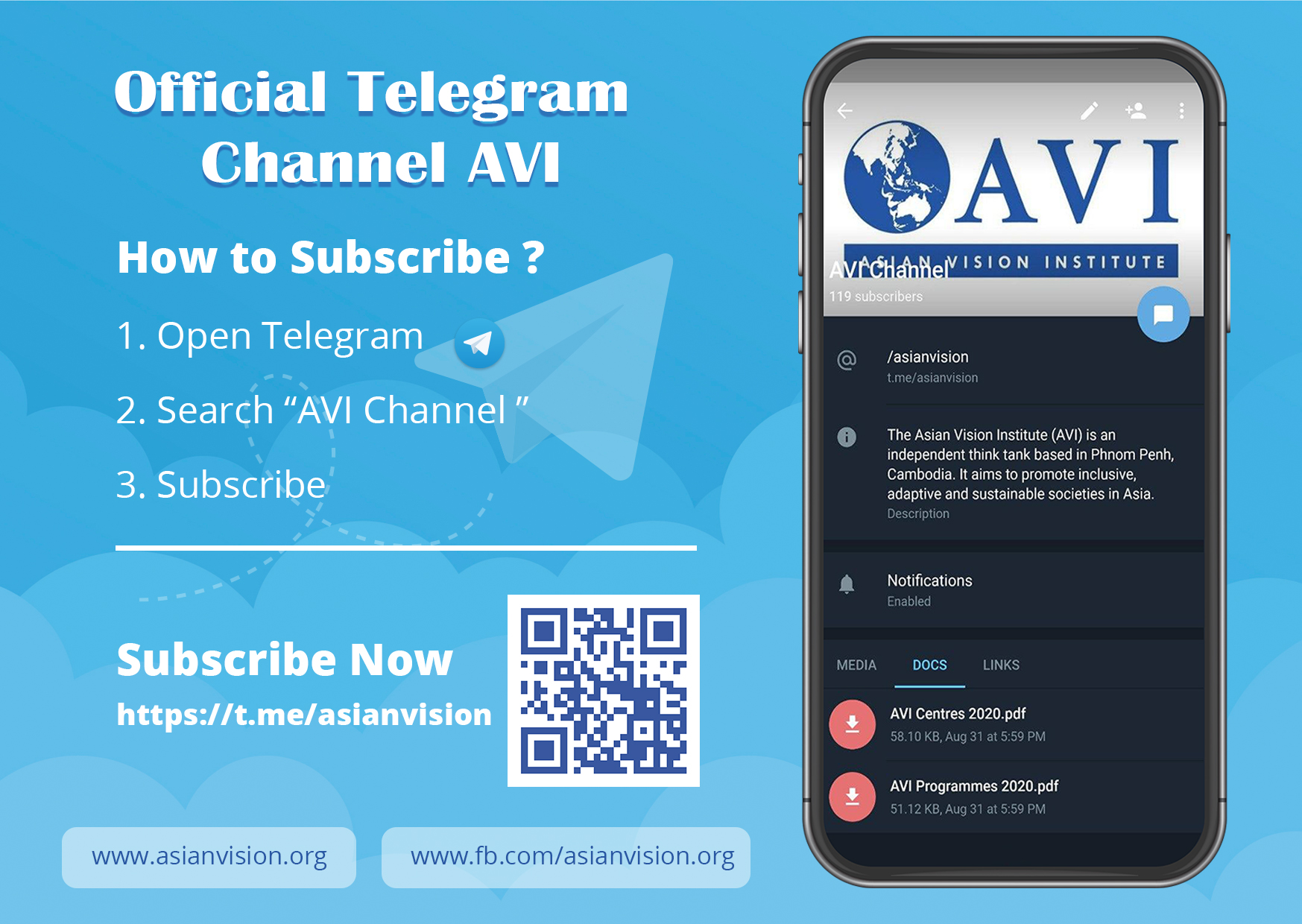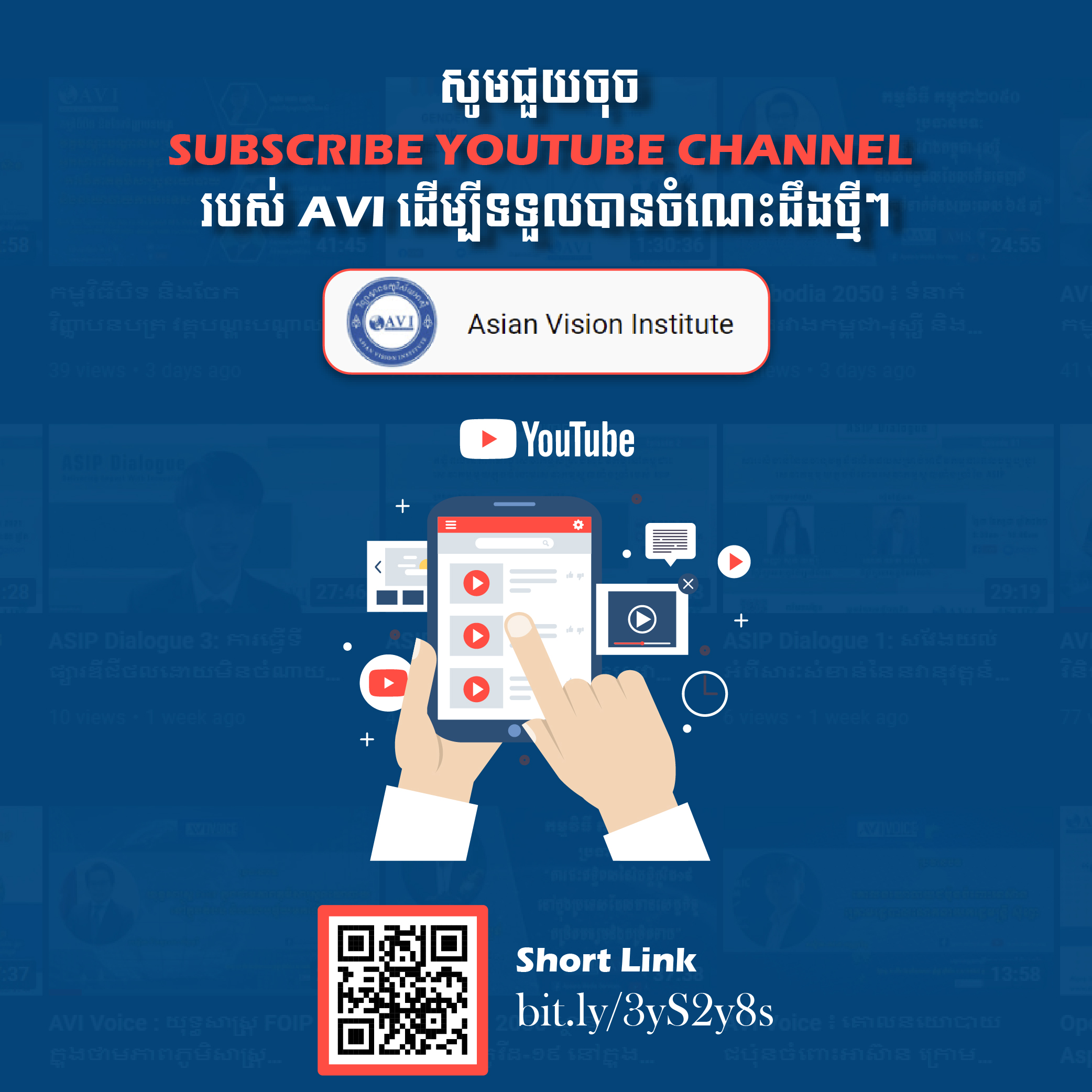On Friday, 24th March 2023, the Centre for Sustainable Development Studies (CSDS) of the Asian Vision Institute (AVI) organised the twentieth AVI-SDGs Dialogue webinar series on “Gender Equality and Social Inclusion for Climate Change Action” via Zoom and Facebook live stream. The distinguished panellists for this webinar include Ms. Michelle Chic Gudo, Regional Adviser of Oxfam, and Ms. Onn Chansreyleak, Cambodia Country Program Communication Officer, Regional Community Forestry Training Centre for Asia and the Pacific (RECOFTC).
During the discussion, the panelists provided insightful presentations on the current state of Cambodia’s progress in promoting gender equality and social inclusion for climate change action from their respective organisations. Ms. Michelle Chic Gudo started her vision by defining gender equality and social inclusion. The regional advisor illustrated that climate change disproportionately affects the most vulnerable social groups, especially women and girls, more than men. Women and girls worldwide face discrimination in restricted access to resources and education, which lead to numerous risks, including death, violence, and sexual assaults during displacements caused by extreme climate events. Ms. Onn Chansreyleak also emphasized that women globally face various challenges, such as loss of paid work, significant impact on their livelihoods, increased unpaid care work, and gender-based violence due to the pandemic-induced lockdown. Additionally, climate change has adversely affect agriculture production and limits the available market for their non-timber forest and agriculture products.
To address these challenges, Ms. Michelle highlighted Oxfam’s commitments in promoting Gender Equality and Social Inclusion (GESI) in Climate Action towards SDG Goals. Oxfam has been assessing and addressing risks, building capacities of vulnerable people and institutions to address the causes of vulnerability, inequality, gender injustice and poverty. Also, it aims to convene policies and practices towards strengthening the resilience of vulnerable people. Ms. Onn Chansreyleak deepened the discussion by illustrating RECOFTC’s comprehensive work promoting GESI in climate change action. At the community level, RECOFTC is building two women’s community networks to provide safe spaces for women to learn and share progress, information, and challenges regularly in their community. At the national level, RECOFTC promotes policies to promote gender equality in climate change and resource management and provides capacity building. At the regional level, RECOFTC has launched “Weaving Leadership for Gender Equality (WAVES)” to build a network of 31 gender leaders from seven countries and support them as they advocate for equality and lead gender-mainstreaming programs in their communities and institutions.
Despite these tremendous efforts, several challenges still threaten the progress of promoting gender equality and inclusiveness in climate change actions that need more interventions from all relevant vital partners, including government and non-governmental organisations. The two distinguished speakers proposed several key recommendations, including supporting women’s leadership in climate change, identifying and tracking progress on gender and intersectional perspectives in policies and programs, and reducing structural gender inequalities. Moreover, the provision of financial support for livelihood security, capacity development for women’s knowledge expansion on gender and climate change, and providing women opportunities to engage in leadership are required to enhance the progress of gender equality and social inclusion in the long run.
In conclusion, the webinar was successfully initiated with fruitful comments and discussions. The panelists also laid out their key takeaways, such as calling for a comprehensive tracking mechanism to provide adequate data and updates on the progress of GESI and climate change in Cambodia. Moreover, the government should raise awareness among all populations on understanding gender equality and social inclusiveness by simplifying the technical terms to be easily interpreted and understood widely across the country.





